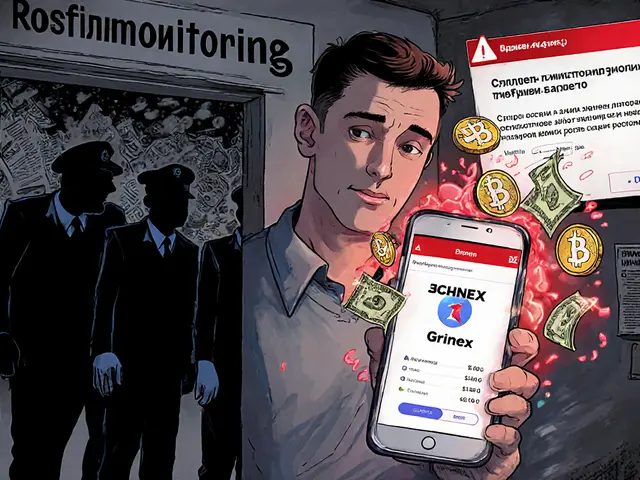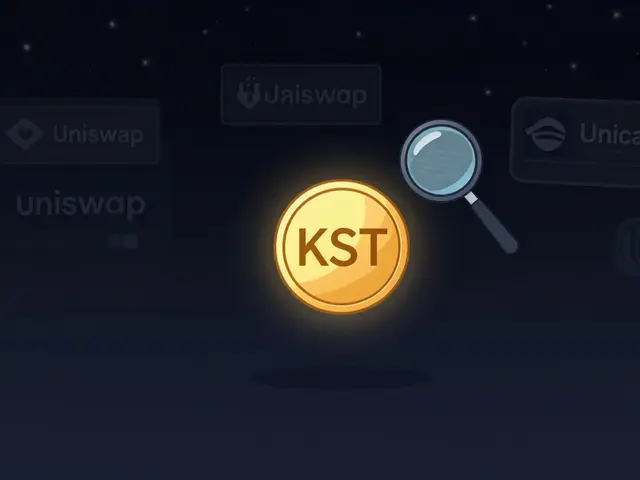Turkish Crypto Trading Compliance Checker
Compliance Result
TL;DR
- Crypto ownership and trading are legal in Turkey, but using digital assets for payments is banned by the Central Bank.
- All crypto service providers must hold a license from the Capital Markets Board (CMB) and meet minimum capital: 150millionTL for exchanges, 500millionTL for custodians.
- Effective February2025, new rules bring Turkey in line with EU MiCA on consumer protection, while keeping stricter payment bans.
- MASAK is set to gain authority to freeze crypto accounts as part of AML enforcement.
- Traders can comply by using licensed exchanges, completing KYC for transactions over 15,000TL, and monitoring upcoming AML reporting requirements.
What the law actually says
In Turkey, Cryptocurrency is defined as a digital asset that can be owned, bought, and sold, but it cannot be used as a means of payment. The ban was imposed by the Central Bank of Turkey (TCMB) in April2021 and remains in force. That means you can hold Bitcoin, Ethereum, or any other token in a wallet, but you cannot pay for groceries, rent, or services directly with them.
Licensing the crypto ecosystem
To keep the market orderly, the Capital Markets Board (CMB) requires every crypto‑asset service provider (CASP) to obtain an operating licence. The July2024 amendment to the Capital Markets Law introduced two capital thresholds:
- 150millionTL (about US$4.1million) minimum for exchange platforms.
- 500millionTL (about US$13.7million) minimum for custodial services that hold users’ assets.
These figures are notably higher than most EU licensing caps, which usually sit around 50millionTL. The higher bar is intended to weed out low‑capital players and protect investors from sudden platform failures.
Who watches over compliance?
The compliance landscape involves three key agencies:
- Financial Crimes Investigation Board (MASAK) - enforces AML/KYC rules, monitors suspicious transactions, and will soon be able to freeze crypto accounts.
- Scientific and Technological Research Council of Türkiye (TÜBİTAK) - conducts mandatory technology audits of CASPs to ensure system integrity.
- Capital Markets Board (CMB) - issues licences, collects regular operational reports, and mandates transaction record‑keeping, including cancelled trades.
Any transaction above 15,000TL (≈£425) triggers mandatory identity verification. Even wallets that are not linked to a licensed exchange must pass a verification check if they move that amount.
New rules coming February2025
Turkey’s February2025 regulatory package does three big things:
- Aligns consumer‑protection clauses with the EU’s MiCA framework, meaning clearer disclosure of fees, risk warnings, and dispute‑resolution mechanisms.
- Keeps the payment ban intact, unlike the EU where regulated crypto payments are allowed.
- Grants MASAK the power to freeze or close crypto accounts linked to money‑laundering, terrorist financing, or “rented accounts” used for illegal gambling.
These changes bring Turkey closer to FATF standards but also tighten the government’s grip on illicit activity.
How the restrictions affect everyday traders
For a typical Turkish crypto enthusiast, the impact is both practical and psychological:
- Conversion headaches: Because you can’t spend crypto directly, you must swap to Turkish Lira (TL) before buying everyday goods. Most users rely on licensed exchanges like BTCTurk or Paribu for this conversion.
- Privacy concerns: The 15,000TL KYC threshold means many traders have to disclose personal data they would otherwise keep offline.
- Grey‑market activity: Peer‑to‑peer (P2P) deals have surged as traders try to bypass exchange fees and verification steps, but these trades carry higher legal risk.
- Risk of account freezes: Once MASAK’s freeze powers are active, a single flagged transaction could lock your entire crypto portfolio across all local platforms.
So, what can you do to stay on the right side of the law?

Practical compliance checklist for Turkish users
- Only trade on CMB‑licensed exchanges. Check the exchange’s licence number on the CMB website.
- Complete full KYC if you expect to move more than 15,000TL in a month.
- Keep detailed records of every trade, including timestamps, amounts, and counter‑party wallet addresses.
- When converting crypto to TL, use the official exchange rate provided by the platform; avoid off‑exchange rates that could be flagged as price manipulation.
- Set up a dedicated compliance folder (digital or paper) for tax‑related documents, even though profits are currently untaxed.
Comparison with other jurisdictions
| Aspect | Turkey | EU (MiCA) | United States |
|---|---|---|---|
| Legal status of ownership | Legal | Legal | Legal (state‑by‑state) |
| Payment using crypto | Prohibited by TCMB | Allowed under regulated licences | Allowed in most states, subject to FinCEN rules |
| Minimum exchange capital | 150millionTL (~US$4.1M) | ≈50millionTL (varies by country) | No federal minimum; state licences differ |
| AML/KYC threshold | 15,000TL per transaction | 5,000EUR per transaction (EU average) | Varies, often $10,000 for reporting |
| Account freeze power | MASAK may freeze accounts (2025 draft) | Limited; only court‑ordered | FinCEN can issue freeze orders |
The table shows why Turkey feels stricter on capital and payments, yet it aligns with EU consumer‑protection standards. For traders, the biggest practical gap is the outright ban on using crypto to pay for goods.
What the upcoming MASAK freeze bill means
According to Bloomberg, the draft legislation will let MASAK:
- Freeze or close crypto accounts across banks, e‑money institutions, and exchanges.
- Impose transaction limits on high‑risk wallets.
- Blacklist wallets linked to criminal activity, especially those used in “rented accounts” schemes.
If you’re running a crypto‑related business, you’ll need a dedicated risk‑management team that can respond to freeze notices within 24hours. For individual traders, the safest approach is to keep most of your assets on a licensed exchange where MASAK can more easily verify legitimacy.
Impact on the Turkish crypto market size
Turkey ranks 11th globally for crypto adoption, driven by a population of 84million and a historically volatile TL. Even with the payment ban, trading volumes keep rising. A 2024 market analysis estimated a 27% YoY increase in exchange turnover, mainly on platforms like BTCTurk and Paribu.
When the new capital thresholds kick in, many small‑scale providers may exit, leaving the market dominated by a few well‑capitalized players. This consolidation could improve liquidity but also reduce competition on fees.
Step‑by‑step guide to start compliant crypto trading in Turkey (2025)
- Choose a licensed exchange. Verify the CMB licence number on the exchange’s “About” page.
- Register and complete KYC. Provide national ID, proof of address, and source‑of‑funds documentation if you plan to trade above 15,000TL.
- Deposit TL via a bank transfer to the exchange’s Turkish account. Avoid cash deposits, which are harder to trace.
- Buy crypto. Use the exchange’s market or limit orders; remember you cannot use crypto to pay for non‑crypto goods.
- Convert back to TL before any spending. Keep the conversion receipt for potential future tax reporting.
- Maintain records. Export monthly CSV statements and store them securely for at least five years.
- Stay updated. Follow CMB and MASAK announcements; new AML reporting rules may require additional transaction details.
Following these steps will keep you under the radar and ready for any future tax or reporting changes.
Common pitfalls and how to avoid them
- Using unlicensed DEXs: Platforms like PancakeSwap have been blocked in Turkey. Accessing them can lead to fines or account closures.
- Ignoring KYC thresholds: Even if you split a 30,000TL transfer into two 15,000TL moves, regulators view it as evasion.
- Relying on cash‑only P2P trades: These lack audit trails, making them high‑risk if MASAK launches its freeze powers.
- Assuming profits are tax‑free forever: The government is considering a 20% tax on crypto gains once the market matures.
Future outlook: will the payment ban lift?
Industry insiders speculate that a gradual easing could happen if Turkey’s financial stability improves and if the EU’s MiCA model proves successful. However, the current political climate favors tight capital controls to curb capital flight, so a full lift looks unlikely before 2030.

Frequently Asked Questions
Can I legally buy Bitcoin in Turkey?
Yes. Buying, holding, and selling Bitcoin is legal, but you must use a CMB‑licensed exchange and comply with KYC rules for any transaction above 15,000TL.
Why does the Central Bank ban crypto payments?
The TCMB says crypto payments threaten monetary stability and could accelerate capital flight from the TL. By blocking payments, the bank keeps better control over the money supply.
What happens if MASAK freezes my exchange account?
MASAK can order the exchange to lock your account and freeze any assets held there. You’ll need to submit documentation proving the legitimacy of the funds to get the freeze lifted. Keeping most of your crypto on a licensed platform makes the process smoother.
Are crypto gains taxed in Turkey?
As of October2025, crypto profits are not taxed. However, the Finance Ministry is drafting legislation that could introduce a 20% tax on gains starting in 2026.
How do I verify that an exchange is licensed?
Visit the Capital Markets Board’s official website and search for the exchange’s licence number. Licensed platforms display the number prominently on their “About” or “Legal” pages.












People Comments
Wow, the Turkish crypto landscape reads like a roller‑coaster for 2025! 🎢 The payment ban really tightens the purse strings, but at least the licensing regime gives some stability. If you stick to licensed exchanges and respect the 15,000 TL KYC threshold, you’ll stay out of trouble. Good luck navigating the rules – you’ve got this! 😊
Honestly, Turkey’s over‑regulation is a perfect example of why strong national financial sovereignty matters. The US knows better than to choke its own innovators with such bans.
The whole "crypto is legal but can't be used for payments" story is a textbook case of regulatory hypocrisy. First, the government claims to protect the TL, yet it effectively forces citizens onto a handful of heavy‑handed exchanges. Second, the 15,000 TL KYC barrier punishes everyday traders while large whales slip through with sophisticated AML tricks. Third, MASAK’s looming freeze power feels like a threat straight out of a dystopian novel. Fourth, the capital requirements of 150 million TL for exchanges are absurdly high for a market still yearning for competition. Fifth, the ban drives P2P deals underground, where fraud risk skyrockets. Sixth, the lack of crypto payment options pushes users to convert into TL, feeding inflationary pressure. Seventh, the regulatory framework seems designed to stifle innovation rather than protect consumers. Eighth, investors abroad will view Turkey as an unsafe jurisdiction, draining potential foreign capital. Ninth, the compliance checklist is longer than a university thesis, deterring newcomers. Tenth, the requirement to keep records for five years adds bureaucratic overhead no small trader wants. Eleventh, the looming 20% tax on gains is a clear signal that the state wants its share of any future upside. Twelfth, the alignment with EU MiCA on consumer protection is superficial when the core payment ban remains. Thirteenth, the ban on DEXs like PancakeSwap ignores the global shift toward decentralized solutions. Fourteenth, MASAK’s freeze authority could be abused for political purposes. Fifteenth, all these measures combined create an environment where only the well‑funded survive, crushing the grassroots crypto community.
Hey, I get that the rules feel heavy, but they do give some consumer protection. Stay calm, use the licensed platforms and you’ll be fine.
Good point! 👀 I’ve seen many traders forgetting to check the CMB licence number – it’s easy to verify on the board’s site. Also, keeping a tidy CSV of every trade can save you a lot of headaches later. If you ever need a quick guide, just let me know!
Nice rundown, super helpful. I’ll definitely double‑check my exchange’s licence.
What a colourful tapestry of rules! 🌈 If you keep your crypto on a big, licensed exchange, you’ll dodge most pitfalls. And remember – a bright splash of compliance now beats a dark storm of freezes later.
Turkey is trying to choke the crypto market, and it’ll backfire. Let’s see how long they can keep this up.
Turkey can't trade crypto like we do.
In accordance with the prevailing regulatory framework, compliance with the Capital Markets Board's licensing requisites is paramount. The stipulated capital thresholds of 150 million TL for exchanges and 500 million TL for custodians demonstrate a rigorous approach to market stability. Moreover, the 15,000 TL KYC threshold aligns with international Anti‑Money‑Laundering standards, thereby enhancing transactional transparency. Consequently, adherence to these provisions will invariably mitigate legal exposure for market participants.
Honestly, I think all this regulatory hype is just noise. People will find a way around it, P2P and all that.
Thx for the info! It really helps me figgure out what i need to do.
Just keep an eye on the official CMB list – it’s the easiest way to stay safe. And don’t forget to backup your CSVs!
One might contemplate, in a philosophical sense, the paradox of freedom versus control, especially when a state imposes strict financial boundaries; yet, paradoxically, such constraints may cultivate a new form of discipline, a disciplined freedom, if you will, within the crypto ecosystem, where users adapt, innovate, and perhaps even flourish under pressure.
Quite frankly, the entire regulatory edifice appears crafted to stifle competition, serving merely as a bureaucratic shield for incumbent exchanges; the over‑abundance of paperwork, the punitive KYC floor, and the looming freeze power are nothing but calculated deterrents.